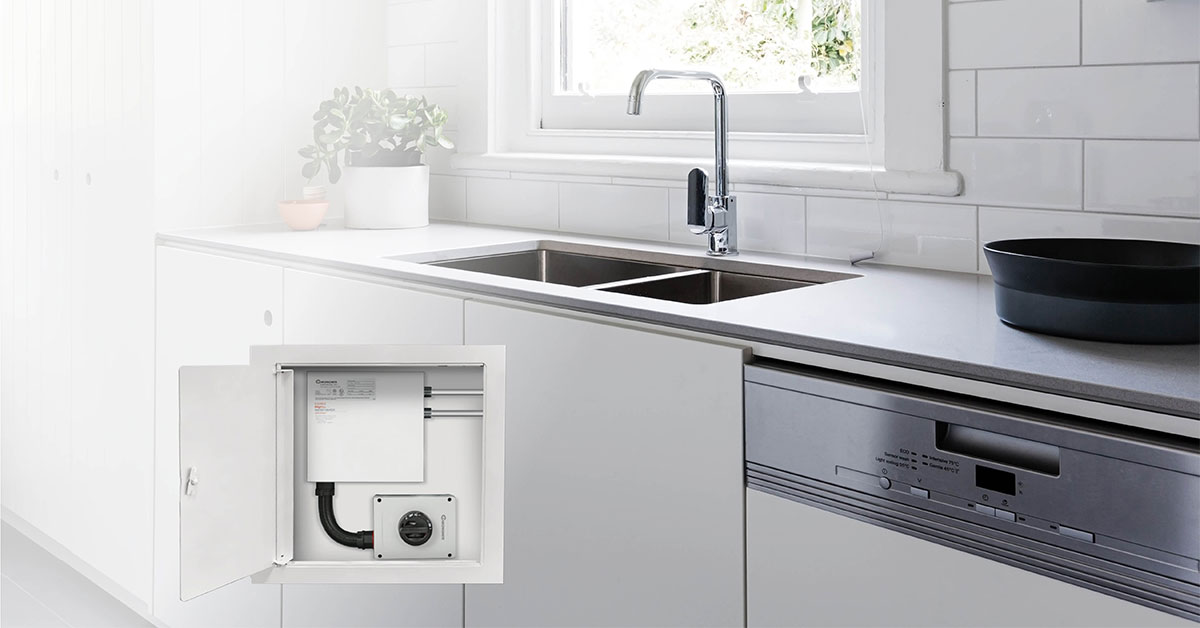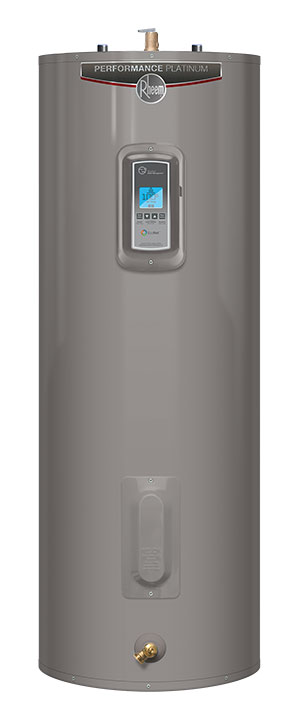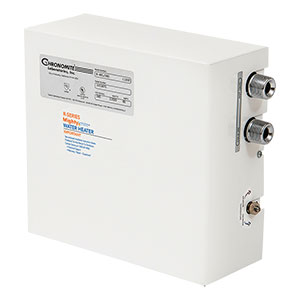
It’s a holiday weekend. You’re trying to get the family out the door, and someone yells from the bathroom, “There’s no hot water!”
You race down to the basement or the utility closet and discover a minor flood surrounding your storage tank water heater. You’ll need a new water heater ASAP, and you’ll likely be paying for your plumber’s next vacation, considering the double-time holiday rates they’ll charge.
This unfortunate scenario, or one like it, has befallen many homeowners. For the rest, it’s not a question of if, but when. So, when you find yourself in the position of needing to replace your water heater, how do you choose the best one?
Water heaters come in three main types—conventional storage tank water heaters, tankless (also called on-demand or point-of-use) water heaters, and heat pump water heaters. Here are the basics of each:
- Conventional Storage Water Heaters: Water is stored in a reservoir or tank where it is continually heated and ready for use.
- Heat Pump Water Heaters (HPWHs): Heat is pulled from the surrounding air instead of being generated, then transferred into the storage tank where it heats the water.
- Tankless/On-Demand Water Heaters: Water is heated at the source when and as it’s needed, increasing energy efficiency and ensuring you don’t run out of hot water during peak times.
While you might think simply replacing like with like is the most obvious solution, you should ask yourself some critical questions before deciding. Is the upfront cost the deciding factor, or are you interested in long-term efficiency savings? Are you currently using fossil fuels as your energy source and looking for cleaner electricity in your home?
Let’s look at some of the pros and cons of each type of water heater!
 Conventional Storage Tank Water Heaters
Conventional Storage Tank Water Heaters
Conventional water heaters can run on natural gas, propane, fuel oil, or electricity. This often makes replacing one much easier. You simply swap the new one for the old one.
Their lower purchase price often seems like a big pro for conventional storage water heaters. However, the least expensive water heater may become the most expensive over time, once you consider their relatively short life spans and overall maintenance costs. In addition, a conventional storage tank water heater is the least energy efficient type because it keeps water heated to the desired temperature at all times. If no hot water is actually required, then it simply goes to waste.
Speaking of costs, don’t forget to factor in installation. Depending on your energy type and local building codes, it’s probably best to hire a pro to install your new water heater. If you decide to go the DIY route, be sure to read the manufacturer’s installation instructions and contact your city or town to see if you need a permit. You will also need to ask about your local water heater building codes.
Regardless of whether you hire a pro or do the installation yourself, be sure to hang on to the manufacturer’s installation and maintenance instructions. To help extend the life of your water heater, you’ll want to perform some routine maintenance, like flushing the storage tank, checking the T/P valve every six months, and performing a yearly inspection of the anode rod.
 Heat Pump Water Heaters (HPWHs)
Heat Pump Water Heaters (HPWHs)
If you already have a heat pump to heat and cool your home, a heat pump water heater could make the most sense. They can be two to three times more energy efficient than a conventional water heater and, like tankless water heaters, they eliminate the use of fossil fuel.
However, if you are installing one from scratch, there are a few things to consider.
Heat pump water heater systems have significantly higher upfront costs than conventional storage tank and tankless water heaters. Installation should be performed by someone who specializes in this type of system, and they do require regular maintenance. However, heat pump water heaters do have lower operating costs than conventional storage tank water heaters, which can help offset higher purchase, installation, and maintenance costs over the long term.
Because they draw heat from the surrounding air, warm climates are best for heat pump water heaters. They should be installed in locations that remain in the 40º–90ºF (4.4º–32.2ºC) range year-round, and at least 1,000 cubic feet of air space should be provided.

Tankless/On-Demand Water Heaters
While tankless water heaters tend to cost more off the shelf than a conventional storage tank water heater, they also last longer—often twice as long—and have lower operating costs due to their increased energy efficiency.
According to the U.S. Department of Energy, 1/5 of household energy consumption comes from heating water. In addition, they report that on-demand water heaters can be 24%–34% more energy efficient than conventional storage tank water heaters in homes that use 41 gallons or less of hot water daily. In homes with greater usage—about 86 gallons per day—they can be 8%–14% more energy efficient. In some cases, you may be able to achieve even greater energy savings if you install an on-demand water heater at each hot water outlet.
Why are tankless water heaters more energy efficient? When you turn on the hot water at the faucet, that signals the water heater to apply current to the coils, heating up the water instantly. On the other hand, when no hot water is running, it uses no electricity.
Chronomite® tankless water heaters have lower installation costs. Because they require only a cold water line and electrical hookup, installation is quick and easy, taking only 15 minutes to complete. You also save money by eliminating the costly piping/valving associated with conventional tank heaters. In addition, our low-maintenance water heaters feature a self-cleaning mechanism to prevent alkali and calcium buildup. No corrosion means longer system life.
Our tankless water heaters are small—tiny in comparison to most conventional water heaters. They are about the size of a dictionary and can be installed right in the cabinet under the sink.
Wrapping Up
We hope this information helps you decide what type of water heater is right for you. If you would like more information on the efficiency and comfort of a Chronomite Tankless Water Heater, please get in touch!
How Do Tankless Water Heaters Work? Find Your Chronomite Rep
